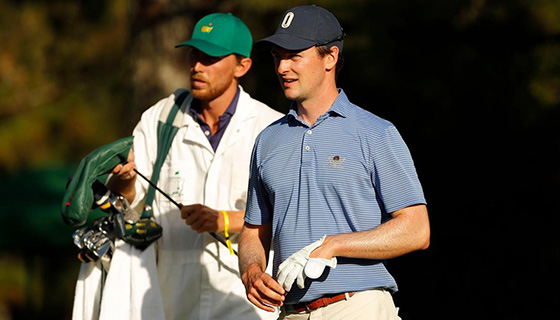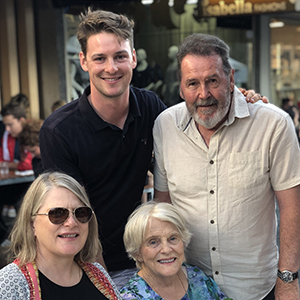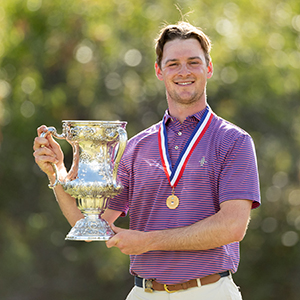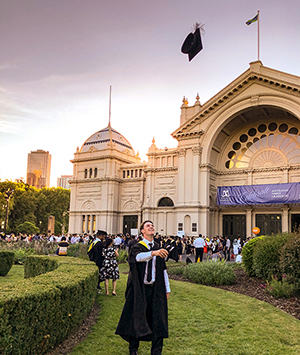As the first Australian to win the US Mid-Amateur Championships in the competition’s 38-year history, Lukas Michel has grit, determination and a focus far exceeding his age. Golf has taught Lukas about growth under pressure and why striving for continuous self-improvement is far more important than always winning.
Taking every opportunity to combine his academic pursuits at the University of Melbourne with his love of golf, Lukas went on exchange to the birthplace of golf during the last year of his science degree, and gleaned insights from his postgraduate studies in mechanical engineering to help improve his golf swing.
We caught up with Lukas to talk about how his time at the University of Melbourne influenced his success, how it pulled him out of his shell, and how his father's experience of escaping Communist-controlled Czechoslovakia (now the Czech Republic) has shaped Lukas' view of the value of education.
Hi Lukas. You've been playing golf since the age of 8. Why golf?
I was introduced to golf by a neighbour when I was a kid and at eight I used my birthday money to buy my first set of clubs. Dad saw I was pretty good and signed me up for some junior clinics and I’ve been playing ever since.
There are lots of ways in which the game of golf matches up with my personality and circumstances. I'm an only child, and golf is an individual sport. You can play it with people of any age, and you don't necessarily need anyone else to play with. Whatever you do in life, there are so many variables that are out of your control. However, in golf you can really only rely on yourself. You can get some bad bounces and bad breaks. But ultimately, it's up to you whether you play well or not.



